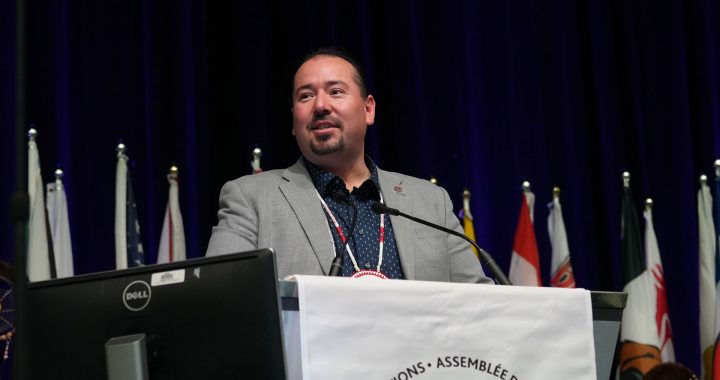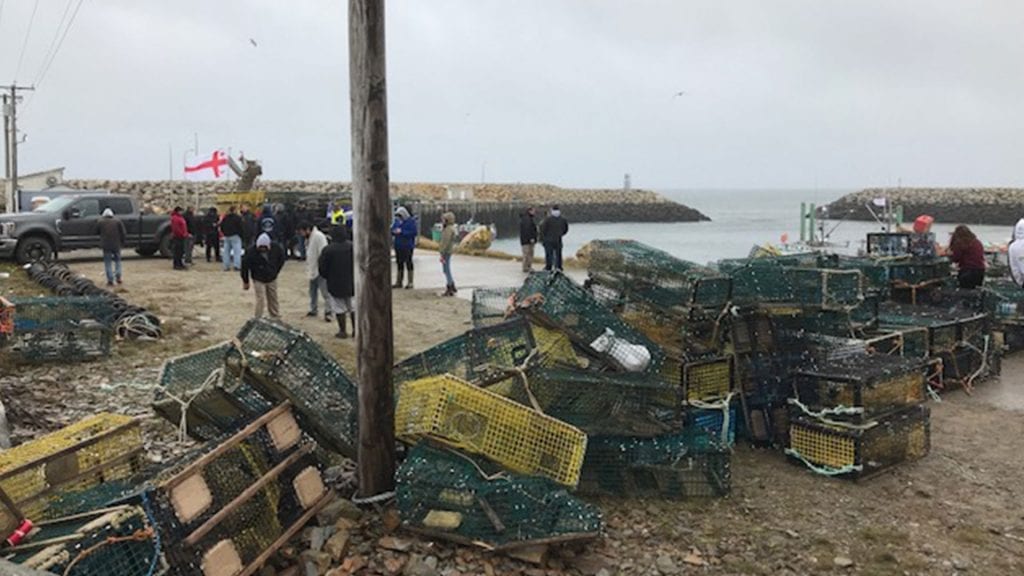
People gather behind a barricade of lobster traps. A Mi'kmaw First Nation was met with protests after it established a moderate livelihood fishery last week. Photo: Angel Moore/APTN
The Mi’kmaq Nation’s fight for Treaty Rights is nothing new for Jaime Battiste, the country’s first and only Mi’kmaw member of parliament.
Prior to becoming the Sydney-Victoria Liberal MP, Battiste was a treaty education lead who worked raising awareness about treaty rights – something he thinks is sorely needed as commercial fishers protest a treaty-based lobster fishery launched by Sipekne’katik First Nation in Saulnierville, about three hours west of Halifax.
“There’s a lack of awareness about what the treaties say,” Battiste, an Eskasoni resident and Potlotek First Nation band member, told APTN News.
“I think that we don’t have enough information out there for these fishermen that are protesting the right [to fish]. They don’t understand the Supreme Court of Canada, not only once but twice, affirmed that the Mi’kmaq have always had this right to provide a moderate livelihood for themselves based on their resources.”
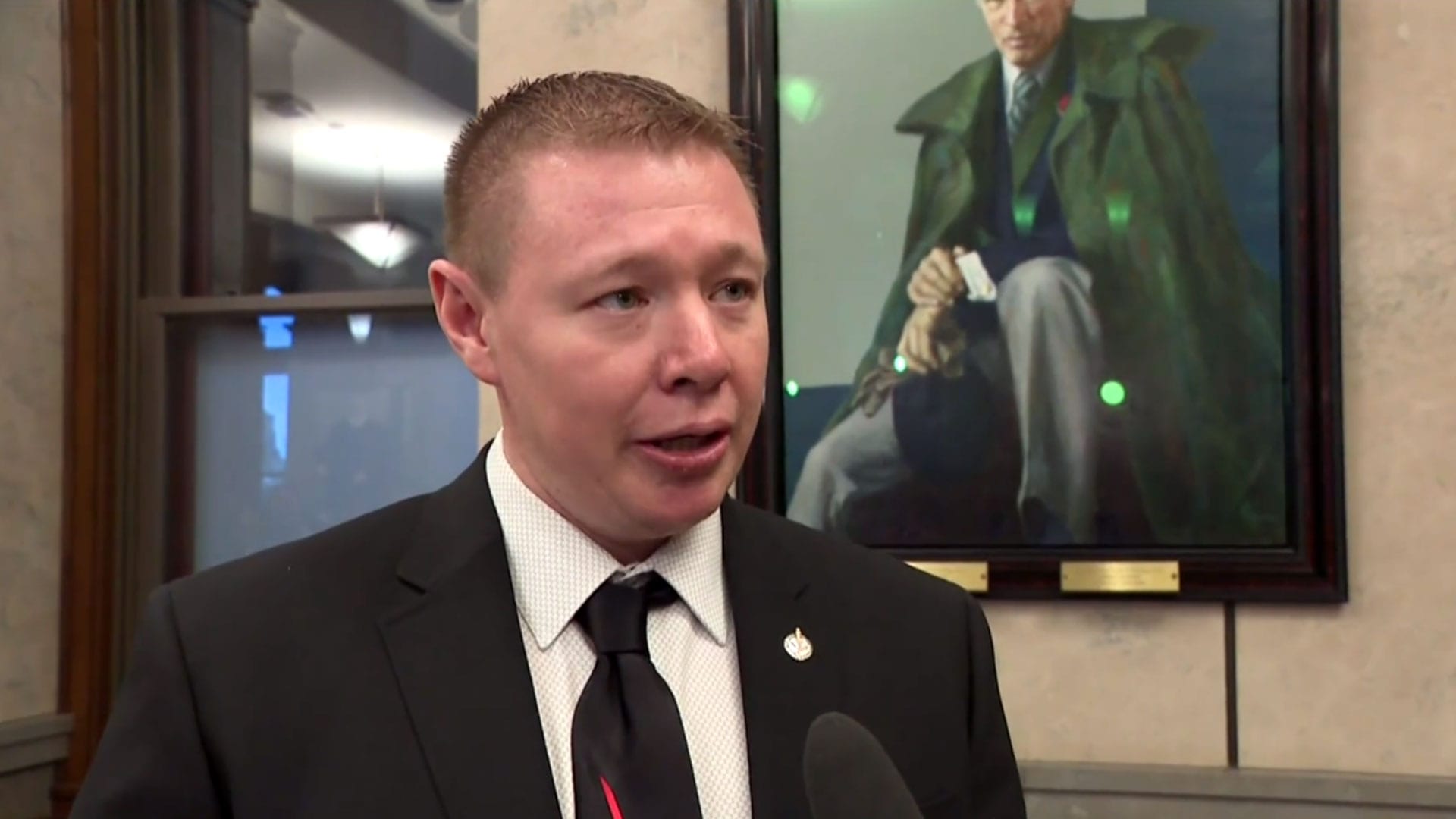
But those who oppose the fishery say their action is about conservation, not about treaty rights.
“We support First Nations individuals in the fishery and respect treaty rights. At the same time, all parties have to adhere to scientifically proven conservation measures,” said the Yarmouth Chamber of Commerce in a letter to provincial and federal governments.
“We do not support the new, off-season, self-regulated, commercial intent of the Sipekne’katik First Nation.”
Battiste is familiar with the argument and doesn’t put much stock in it.
“I just think there’s plenty of arguments being made but none of them are based on fact. They’re all based on assumption and dangerous narratives,” said Battiste, who added that the Mi’kmaw traps account for “less than one per cent” of the total lobster haul.
“If they took a real look at what that community is saying, and what that community is saying about conservation and safety moving forward, they’d realize that what the Mi’kmaq of Sipekne’katik are asking for isn’t that great of an ask.”
Read More:
APTN Investigates: Living Treaties Part 1
The Mi’kmaw fishery issued seven licences that allow 50 traps each. At the moment they’re using only three licences or 150 traps. During the commercial fishery season, there are 390,000 traps set for lobster in this one area alone.
The Department of Fisheries and Oceans says stocks are healthy and that the commercial haul in western Nova Scotia fishing zones netted roughly 32,000 tonnes of lobster with a value of over $500 million in 2019.
Battiste said he plans on meeting with federal cabinet ministers as well as the country’s two Mi’kmaw senators on Friday to talk “win-win solutions” as politicians work to cool tensions on the wharf.
Tempers flared after Sipekne’katik launched its moderate livelihood fishery on Sept. 17. The operation was met by a flotilla of commercial fishers who cut lines and seized traps almost as fast as they were dropped, leading to an increased police presence and two arrests.
The Assembly of Nova Scotia Mi’kmaw Chiefs met with Fisheries Minister Bernadette Jordan and Crown-Indigenous Relations Minister Carolyn Bennett on Monday to discuss the dispute.
“While the public may not comprehend a fishery outside the realm of the Department of Fisheries and Oceans, that does not make our fishery illegal,” said fisheries lead Chief Terrance Paul.
The chiefs said they asked the ministers to “publicly speak out against the racism and violence” and to increase public safety measures both on and off the water.
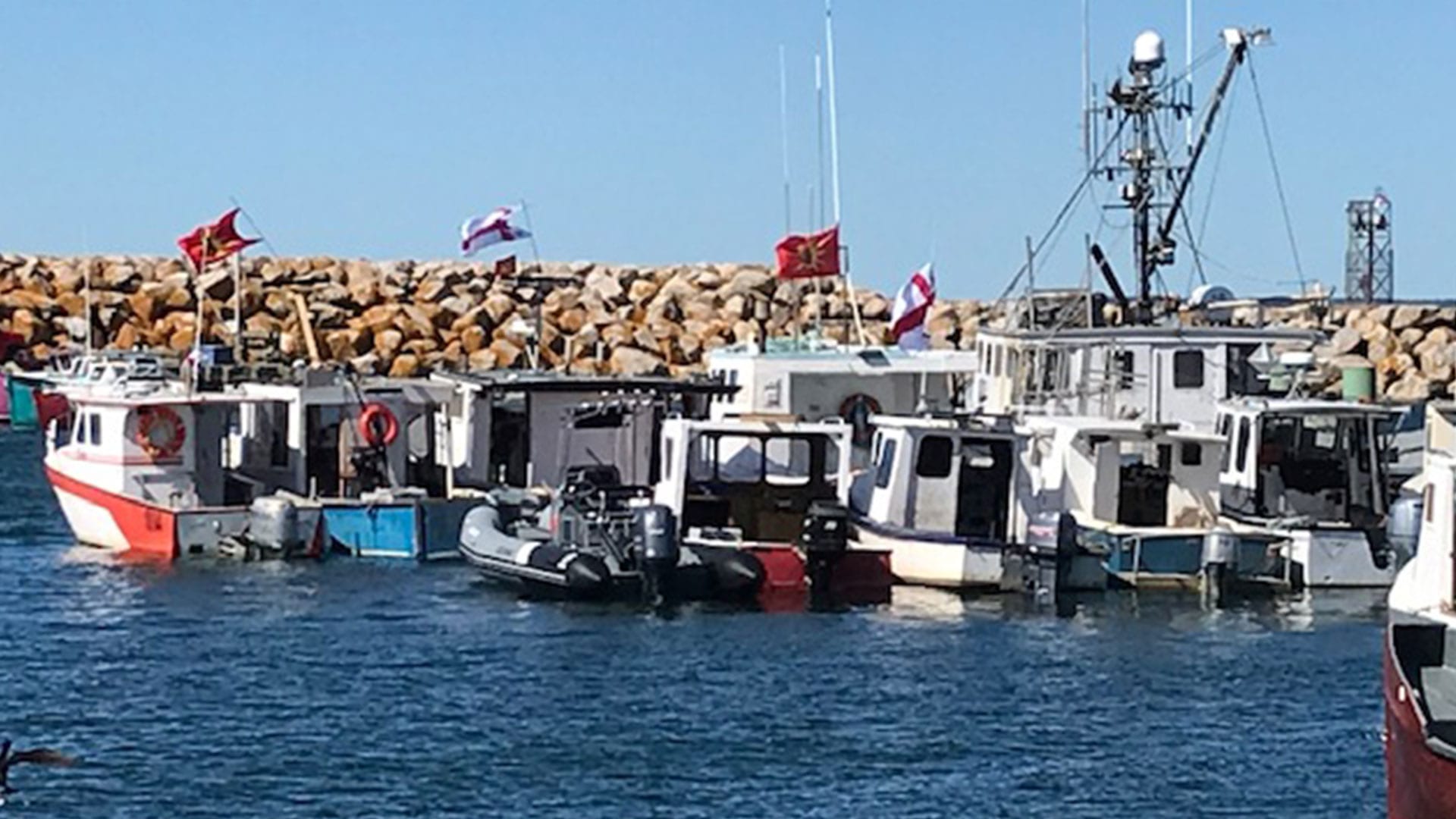
The ministers obliged a few hours later, saying, “We share the concerns of the Assembly Chiefs for the safety of their people. There is no place for the threats, intimidation, or vandalism that we have witnessed in South West Nova Scotia. This is unacceptable.
“DFO fishery officers, Canadian Coast Guard vessels and personnel, Royal Canadian Mounted Police, and Public Safety officials are coordinating their efforts in the sea, on the land, and in the air, and are working with officials from the Province of Nova Scotia to respond to any dangerous situations as they may arise.”
Ottawa affirmed the Mi’kmaq’s “constitutionally protected treaty right to fish in pursuit of a moderate livelihood,” the joint statement said.
Neither minister was available for an interview with APTN on Tuesday.
Upcoming Cape Breton moose hunt
Waycobah Chief Rod Googoo suggested the Mi’kmaq might shutter the provincial moose hunt in Cape Breton in response to the conflict on the water and the tampering with Mi’kmaw traps.
He retired that idea Tuesday, citing progress with talks.
“Over the past few days, we have had productive conversations with the Premier of Nova Scotia and two of the Federal Cabinet Ministers. These parties are working in good faith to help us address the safety issues of our people, on and off the water,” said Googoo.
“Because of this, the Mi’kmaq of Nova Scotia will not be prohibiting or obstructing those with a provincial moose license to conduct their harvest in the Cape Breton Highlands – we have no reason to escalate the situation further.”
Nevertheless, the assembly chiefs made the call to extend their state of emergency until Sept. 29.
They set up a command centre when the emergency was first declared on Sept. 18, pointing to “political unrest” and violence over the Mi’kmaw lobster harvest.
On Tuesday, they warned those considering travelling to the Digby area, where the Saulnierville wharf is located, that all COVID-19 restrictions and regulations remain in effect.
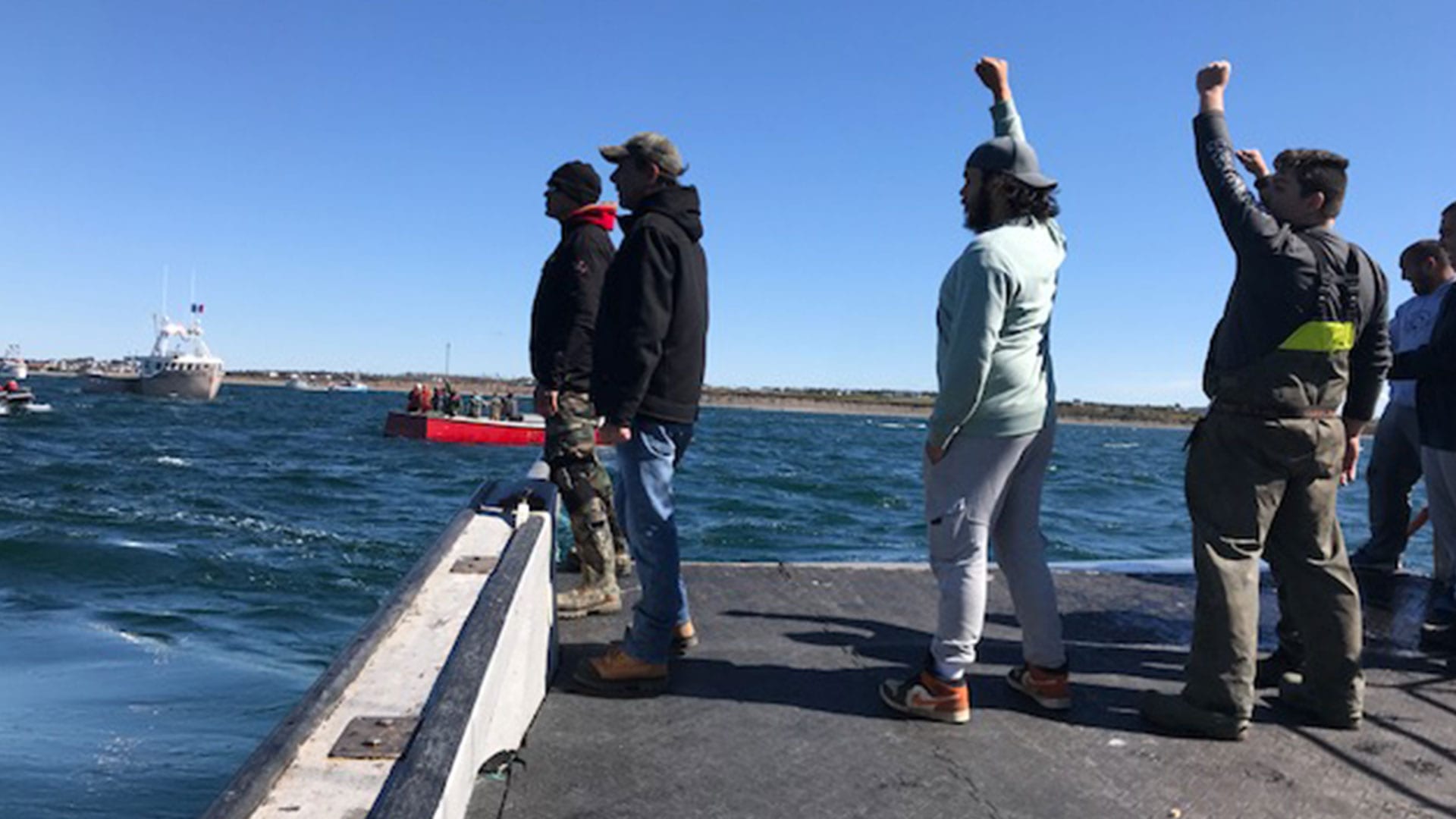
The Mi’kmaq signed Peace and Friendship treaties with the Crown in 1752, 1760 and 1761.
In 1999, Canada’s high court, in a ruling known as the Marshall decision, upheld the Mi’kmaw right to hunt, gather and fish in pursuit of a moderate livelihood that arises from the 1760-61 treaties.
But the courts never defined moderate livelihood, and the parties haven’t agreed on what it means two decades later.
“Politicians can only move as far as their voters allow them, and if their voters don’t understand what’s happening then that’s a challenge,” Battiste said. “It takes time, it’s difficult but it’s only made better through education and awareness.”
Battiste says he’s had “constant contact” with his government’s ministers and hopes the Mi’kmaq can reach an understanding with the state.
“I worked for the Mi’kmaw of Nova Scotia government when Harper was in power and there was no mandate from the government to negotiate this fishery,” he said.
“Now we actually have a mandate and while we’re slow to get results, the dialogue is happening.”




